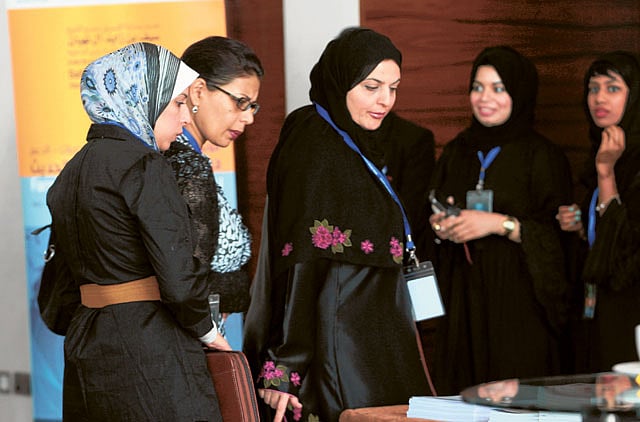Abu Dhabi: Some 65 per cent of juvenile crimes in the Arab world are committed by youths in normal, balanced families, where parents are not divorced, participants at the Family Role in Modern Society conference heard on Wednesday.
Dr Ahmad Al Amoush, Dean of the College of Arts, Humanities and Social Sciences at Sharjah University, said this indicated that even balanced households needed attention.
The two-day conference aims to shed light on the challenges Emirati families are currently facing. The main contributing factors were attributed to globalisation and the opening up of households to numerous imported cultures from across the globe.
Dr Ahmad Wahdan, head of the Assisting Sciences Department and member of the Scientific Council of Policing Sciences at the Sharjah Academy, said the family offered "the first communication experience" a person has in life. He added that this experience would definitely affect a person's entire life.
"Communication between parents and children in Emirati families is cumulatively less than an hour per day," he added.
Leading causes
In a study on the leading causes behind juvenile crime in the Arab word, Al Amoush listed the absence of a father and the absence parental supervision and leadership.
"Divorce in the Arab world has reached 60-65 per cent. Peer pressure, [the] lack of positive role models, children copying their friends, a multitude of TV series that portray values which do not match those of Arab societies and [an] opening [up] to new technologies are all contributing factors to the problem," he explained.
According to Al Amoush, 85 per cent of young people in Arab societies prefer to communicate through chat rooms and social networks rather than face to face.
Dr Jasem Al Marzouqi, director of the Research and Studies Department at the Family Development Foundation, attributed the imbalance of values in the UAE society to the sudden opening up to the outside world, the significant decline in the Emirati population and an increasing expatriate workforce.
"Forty-five per cent of the UAE population is [made up of] youngsters, who will be the future generation. Therefore it is important to instil in them good behaviour and positive values to avoid future problems and divorce, which, according to a study by the Family Development Foundation in 2009, cost the UAE Dh800 million," Al Marzouqi said.
Al Marzouqi pointed to an alarming problem where parents are passing over the responsibility of raising their children to their housemaids.
He added that a drastic increase in the numbers of housemaids, who are reported to number 5 per cent of the UAE's population, reflected an ever-increasing dependence by most families on maids and neglect for their children.
According to a 2007 study conducted by the Ministry of Interior and involving 3,000 families in Abu Dhabi, 19 per cent had four housemaids, 14 per cent had three, 15 per cent had two and 35 per cent had one. In Al Ain alone, 25 per cent of the families had four housemaids.
Al Marzouqi stressed on the importance of fostering awareness among families, instilling positive values, monitoring programmes that address youth and nurturing good behaviour amongst them.
Sign up for the Daily Briefing
Get the latest news and updates straight to your inbox
Network Links
GN StoreDownload our app
© Al Nisr Publishing LLC 2026. All rights reserved.
